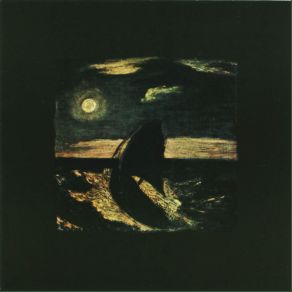Let the Darkness Fall
Download links and information about Let the Darkness Fall by Loren Mazzacane Connors, Suzanne Langille. This album was released in 1999 and it belongs to Electronica, Alternative genres. It contains 7 tracks with total duration of 33:52 minutes.

|
|
|---|---|
| Artist: | Loren Mazzacane Connors, Suzanne Langille |
| Release date: | 1999 |
| Genre: | Electronica, Alternative |
| Tracks: | 7 |
| Duration: | 33:52 |
| Buy it NOW at: | |
| Buy on iTunes $6.93 | |
Tracks
[Edit]| No. | Title | Length |
|---|---|---|
| 1. | Strong and Foolish Heart | 7:14 |
| 2. | Dear Wind | 3:23 |
| 3. | A Sadness In Me | 8:33 |
| 4. | Echoes | 6:29 |
| 5. | Nothing At All | 1:47 |
| 6. | Pale and Paler | 3:52 |
| 7. | Let the Darkness Fall | 2:34 |
Details
[Edit]Suzanne Langille, who has for years been the vocal accompanist of guitarist Loren MazzaCane Connors, steps out in front for this unbelievably sensual series of forlorn ballads and blues. Connors and two-thirds of Atlanta's San Augustin Trio help her out. While it's true that there are a couple of solely instrumental tunes, whereby Connors and the other two guitarists get to create a smoky, oblique forest of sonic tension with Langille playing guitar as well, these are merely interludes for Langille's gorgeous songwriting. Her poetry is direct, deep, and sad; her voice has the sound of bringing the words deep from her body so the lyrics are blurred in the physicality of the emotion. On "Strong and Foolish Heart," she groans and moans her verses, punctuated by a three-guitar chorus: "God knows you never get a breath/He loves you walking through the flame/God knows he's tortured you to death/And now you turn and turn again/I guess it's your choice to make." She may sing these words, but they sound as if they are in direct contradiction to the sorrow and frustration she feels. They fall from her mouth, pouting, then churning, and the listener can feel her body try to hold them back because the feeling opposes that choice and feels the subject's suffering in her own skin. Connors, Burns, and Danielle play between her words, punching the spaces with rounded, muted notes, not quite in unison, but together nonetheless with shimmering overtones and breached chord progressions. "A Sadness in Me" is otherworldly. The space of sadness comes not only from the subjective place of the singer, but also from the collective lives that pass through her space, the space of her body. There is no mental meditation in this singing like there is in the utter falsity of emotion expressed by Margo Timmins from the Cowboy Junkies, who has always done a pale imitation of Langille's singing style. This is music from the body, communicated from its heart into a space that no one can judge the size of — not even the singer — it may be as vast as the universe or as suffocating as a jail cell with the airflow cut off, but the words — and the feelings — have to come out, be given utterance, and float toward the next vessel to interpret or ignore as she or he wishes. The musical accompaniment given Langille here is so sympathetic that it crawls along her spine, coaxing the words from her reluctant, mournful throat. She's full of excruciating suffering, awareness, and the sensuality that comes with being able to bear witness to it. This is a very special recording made by a singer and songwriter of rare abilities and tremendous power.